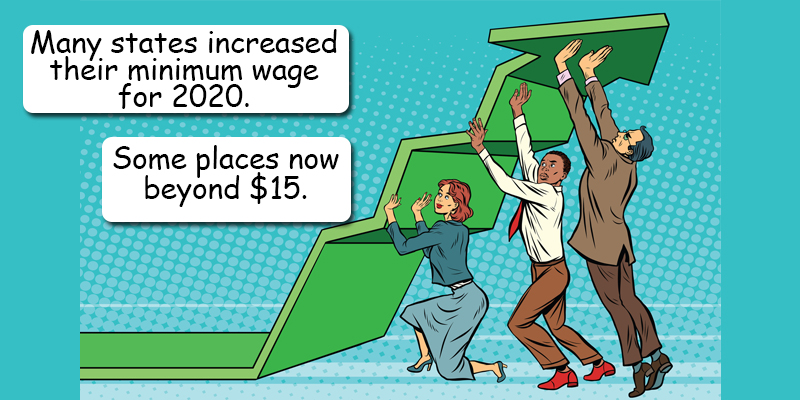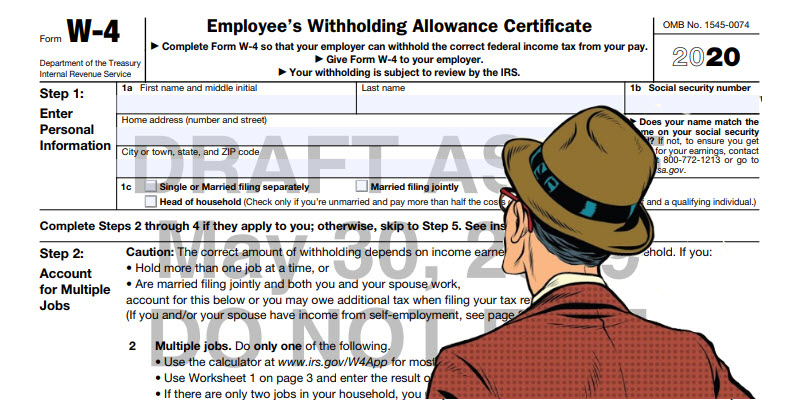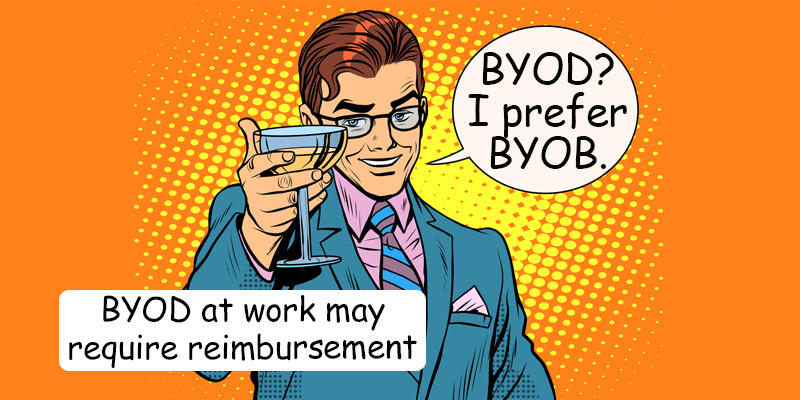While the Federal minimum wage remains at $7.25 per hour,many states and cities/locals have set increases effective January 1st, 2020 with a few announcing a change during 2020, and New York with a December 31st, 2019 increase. A list of each state/local, along with the new hourly rate is listed below; All rates are effective January 1st, 2020 unless otherwise noted. Alaska: $10.19 Arizona: $12.00 ($9.00 for tipped employees) Arkansas: $10.00 (tipped minimum wage will remain at $2.63) California: $13.00 for businesses with 26 or more employees, and $12.00 for 25 or less; Cities marked with an * below will…
Posts published by “Romeo Chicco”
Employers who operate in more than one state need to understand the complexity of determining the proper state location for reporting unemployment taxes for each employee. In this article, we will cover the rules and factors utilized by all states to report and pay taxes, which we can break down to a four-step process. We will not cover state income tax here. That is a topic in itself and will be covered in a future article. Before we start, let’s cover the simple scenario. Employee lives in Florida, but each day drives and crosses state lines to work in Georgia…
We all know that when we pay an employee in cash/wages, it is a taxable transaction to the employee. What is less commonly known is what should happen when something of value other than cash/wages is given. Gifts such as a Thanksgiving turkey, a $25 store gift card for a job well done, a Caribbean cruise vacation for meeting a sales quota, or even a Rolex watch for an employee’s twenty-year anniversary with the company all have different tax consequences. Sometimes the exact same gift given under two different situations may be taxed differently. This article will cover the…
There are many times when an employee may need to travel for business-related purposes. The latter span can include something brief, like a trip to the bank, or a cross-country flight for a business conference and depending upon the circumstances, it can be compensable time. I think the best way to tackle this is to take a look at examples as to what is and what is not: What is NOT compensable Home to work/Work to home (aka commuting) – An employee who travels from home before the regular workday and returns to his/her home at the end of the…
With 75% of all child support collected through income withholding by employers, if you have handled payroll for any minimal amount of time, you have most likely needed to comply with a support order. They are long multipage documents with many pitfalls in regards to the proper handling of them. They should not be taken lightly as they are court ordered mandates, and failure to comply properly could mean fines, penalties, liability for the amount of the child support or even U.S. Department of Labor wage and hour violations. Even if the order comes from a court in another state,…
I had written a previous blog “Going Paperless” regarding paperless payroll as it pertains to the check stub, but I suppose I may have put the cart before the horse. You cannot really have a paperless payroll unless you get rid of the paycheck. Of course you have employees with direct deposit, but what about the unbanked, or those who may just prefer to get a check, rather than all of the conveniences of direct deposit? Are there ways to mandate direct deposit to become paperless? Yes, there are 25 states where the laws or enforcement positions can be interpreted…
The W-4 form has remained basically unchanged for many decades. For a flashback, here is what it looked like in 1990: https://www.irs.gov/pub/irs-prior/fw4–1990.pdf. Unchanged until now, that is. The IRS has done a complete revamp of the form for 2020 by adding many additional fields for the employee to complete as well as removing ‘number of allowances.’ You may ask how that can be since the number of allowances basically dictated the amount of federal income tax withheld from a paycheck. You need to see the new form to believe it, and here it is: https://www.irs.gov/pub/irs-dft/fw4–dft.pdf. The form asks the employee…
Ever since the 2015 Obergefell v. Hodges case in which the Supreme Court of the United States ruled that the fundamental right to marry is guaranteed to same-sex couples by both the Due Process Clause and the Equal Protection Clause of the Fourteenth Amendment to the United States Constitution, it has been shown that the number of employers offering domestic partner benefits has significantly decreased. A year before the ruling (2014), a survey reflected that 59% provided benefits to same-sex domestic partners and just one year later (2016), 48% are providing benefits with that number decreasing each year. The reason…
According to a 2017 study by CareerBuilder, they determined that 78% of US workers live paycheck-to-paycheck and 75% of workers were in debt. With those statistics, many employers find it common to be approached by an employee for a loan or advance. While it may be seen as a way to improve employee morale, productivity, and employee loyalty, there are many other factors to take into consideration to avoid a detrimental impact. In this article, I will cover some of the little known aspects of employee loans and advances. First off is whether or not the loan is going to…
If you have an employee who drives their personal vehicle for a work related matter, it is the norm to reimburse the employee for the business-related use. It is a straight forward calculation by taking into consideration how many miles the person drove and multiplying it by a rate. The IRS even publishes a standard mileage rate of .58 cents per mile (2019). But what if that employee uses their mobile personal device (aka cell phone) in a Bring Your Own Device (BYOD) workplace? As employers implement paperless, streamlined, and automated solutions to their work environment, we are finding that…










